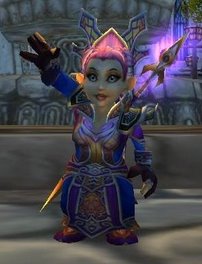By the way...I am going to talk freely about what's happened to Harry through the end of book 7 in this post, so if you haven't read the books yet but plan to, this might spoil things for you.
If you remember, in book 5, Harry keeps having these dreams/visions where he can see what Voldemort is doing; in the climax of the book, he sees Voldemort attacking his godfather, Sirius. Because of this vision, Harry and some of his closest friends rush off to the Ministry of Magic to find Sirius, only to find out that it was a fake vision, just a trap to lure Harry away from Hogwarts. In the battle with Voldemort and his Death Eaters that follows, Sirius is killed. As might be expected, Harry feels awful about this; at the beginning of chapter 37, Harry is crushed by guilt, thinking, "It was all his fault Sirius had died; it was all his fault. [. . .] It was unbearable, he would not think about it, he could not stand it."
Before Harry charged off to the Ministry of Magic, he did try to figure out whether his vision was fake by using the Floo Network to visit Sirius' house. But instead of finding Sirius there, we find the sneaky house-elf--Kreacher--who says that Sirius is gone, which, we later learn, is a lie. Sirius was safe at home the whole time.
Got all that? Harry is indirectly responsible for Sirius' death, but he did try to check the accuracy of his vision, even if he should have suspected Kreacher of being dishonest.
Here's where my question comes in. When Harry leaves Sirius' house after Christmas break is over, Sirius gives him a gift, saying "use it if you need me." Harry mentally refuses to open it, knowing that "he would never use whatever it was. It would not be he, Harry, who lured Sirius from his place of safety..." (chapter 24). After Sirius' death, Harry opens the gift, hoping that he will somehow be able to contact Sirius beyond the grave. The gift is a two-way mirror that would allow Sirius and Harry to talk to each other, but is not strong enough to cross the barrier of death.
The mirror then becomes this piece of incredibly ironic foreshadowing. Harry is in fact the one who lures Sirius from his place of safety, and if only he had used the mirror, it wouldn't have happened. But what I find really interesting is that Harry never realizes this. When I read the scene in chapter 38 where Harry unwraps the mirror, I feel an unbearable sense of regret--if only Harry had used the mirror instead of trying to go and save Sirius. For me, the mirror is a painful reminder of Harry's biggest mistake, the mistake of not opening and using Sirius' gift. Harry, however, doesn't feel this regret; for him, the mirror is simply a potential way of contacting Sirus after death. It never crosses his mind that if only he had opened the mirror sooner, Sirius would still be alive.
Why doesn't Harry realize this? What does it mean that Harry doesn't recognize his incredible mistake in not using the mirror instead of the Floo network to try to talk to Sirius the night of his vision? Is it, as some have suggested, simply that Rowling needed a better editor for books 4 and 5? Or, as my friend K. said to me yesterday, perhaps Rowling didn't want to give Harry more than he could handle. He was devastated by all sorts of hypothetical "what ifs?" that come to anyone who has lost a loved one; perhaps knowing that he should have actually done something would be too much for him to take, and he would have been completely incapacitated by grief. Or is it a sign of his immaturity that Harry doesn't realize the true role he played in the tradgedy?
I'm also wondering what it means that I feel regret for something that doesn't even occur to Harry. I can't come up with other examples in fiction where this has happened to me. Yes, I've felt anger at characters for doing stupid or mean things, but I don't ever remember feeling regret for something the protagonist did--meaning that I've identified with and like him/her--that he/she doesn't already feel. Maybe this is a brilliant, deliberate move on Rowling's part to set her mature readers apart from Harry. Although most of the content of the book is set in a high-school-like setting, the conflicts of friendship, romance, leadership, feeling useless, etc. are ones that appeal to all ages, and therefore it would be easy to expect too much from Harry. Perhaps by creating an emotional state in her readers quite different from that in Harry, Rowling is saying, "Yes, he's a great wizard, but he's not grown up yet. Give him a little more time."
To end on a side note: for those of you who are wondering, here are my predictions for book 7:
- Dumbledore is really dead (not much of a prediction anymore, since Rowling has pretty much confirmed it).
- Harry won't die, but Ron or Hermione (or perhaps Ginny) will, creating an uncrossable rift between Harry and those closest to him.
- Voldemort will die.
- Snape will turn out to be good.

No comments:
Post a Comment